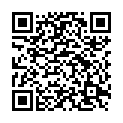|
|
|
| Module code: MEB_24_M_3.05.MK1 |
|
|
3V+1U (4 hours per week) |
|
5 |
| Semester: 3 |
| Mandatory course: yes |
Language of instruction:
English |
Assessment:
written exam 180 min
[updated 13.11.2023]
|
MEB_24_M_3.05.MK1 (P241-0428) Mechanical Engineering, Bachelor, SO 01.10.2024
, semester 3, mandatory course
|
60 class hours (= 45 clock hours) over a 15-week period.
The total student study time is 150 hours (equivalent to 5 ECTS credits).
There are therefore 105 hours available for class preparation and follow-up work and exam preparation.
|
Recommended prerequisites (modules):
None.
|
Recommended as prerequisite for:
|
Module coordinator:
Prof. Dr. Bernd Heidemann |
Lecturer:
Prof. Dr. Bernd Heidemann
[updated 28.02.2025]
|
Learning outcomes:
After successfully completing this course, students will be able to classify technical systems into technical products and machines. Students will be able to analyze and justify technical systems in terms of function and element design. Students will be familiar with basic construction methods, joining techniques and elements and will be able to develop constructive solutions with these. They will be able to constructively design simple elements (e.g. grippers, pliers, presses, jigs and fixtures) for basic requirements (functional, manufacturable) and present them in handmade drawings. Students will be able to formulate questions and present constructive ideas in front of a large group.
Students will improve their subject-related technical English skills. Students will know the subject-specific English terms.
[updated 28.02.2025]
|
Module content:
Introduction: Definitions of “machine” and “machine elements” Classification: “Constructing” as an activity within a product development process. The basic requirements for a construction/technical product Systems engineering and systems engineering analysis (The input variables energy, material, information for a technical system, couplings in a technical system.) Form and position tolerances Housings and frames - construction methods and constructive designs Fixed couplings - fastenings and techniques: welding and construction suitable for welding. Bonding and adhesive construction. Rivets, bolts, pins and the design of typical connections. Screws and the design of prestressed bolt connections.
[updated 15.01.2024]
|
Recommended or required reading:
Decker, K.-H.: Maschinenelemente. Carl Hanser Verlag, München. Hoenow, G., Meißner, T.: Entwerfen und Gestalten im Maschinenbau. Bauteile – Baugruppen – Maschinen. Carl Hanser Verlag, München. Hoischen, H., Hesser, W.: Technisches Zeichnen. Grundlagen, Normen, Beispiele, Darstellende Geometrie. Cornelsen Verlag Scriptor GmbH & Co. KG, Berlin. Jorden, W.: Form- und Lagetoleranzen. Carl Hanser Verlag, München. Muhs, D., e.a.: Roloff/Matek Maschinenelemente. Normung, Berechnung, Gestaltung. Vieweg + Teubner Verlag, Wiesbaden. Muhs, D., e.a.: Roloff/Matek Maschinenelemente. Tabellen. Vieweg + Teubner Verlag, Wiesbaden. Trumpold, H., Beck, Ch., Richter, G.: Toleranzsysteme und Toleranzdesign – Qualität im Austauschbau. Carl Hanser Verlag, München Wien.
[updated 15.01.2024]
|

